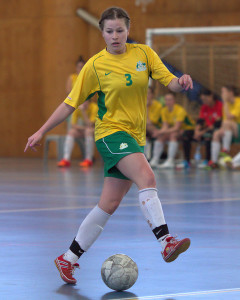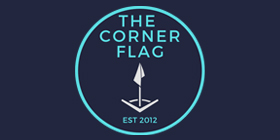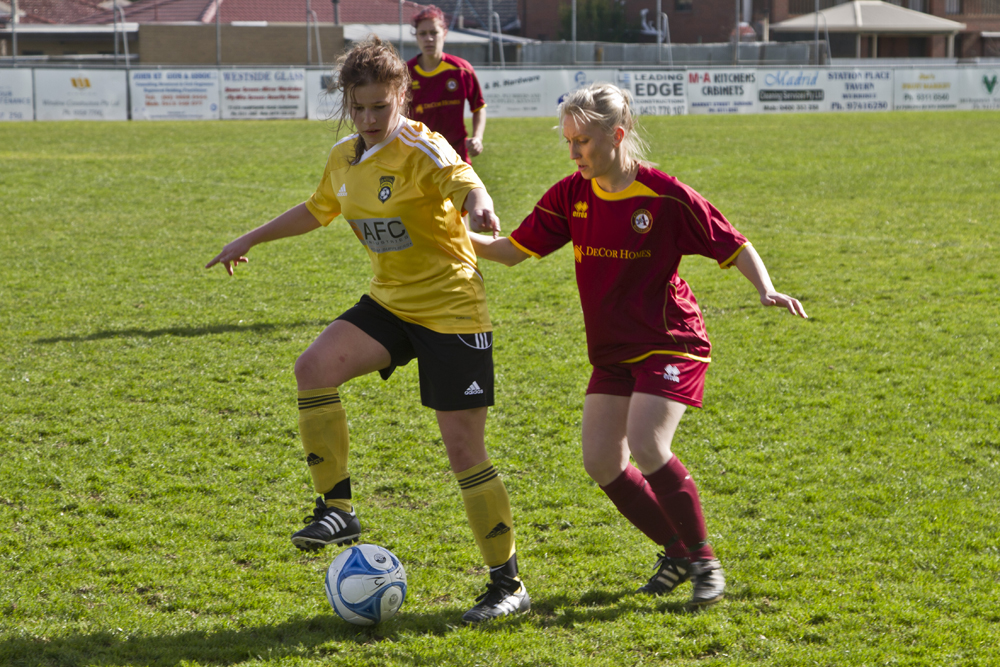Women’s Premier League (WPL) action may have finished up for another year but for Bundoora forward Sarah Richardson, the journey is only just beginning.

Richardson was the only Victorian picked in the Australian squad of 12 for the Women’s Futsal World Cup, taking place in Barrancabermeja, Colombia this November.
The team will fly to Los Angeles for a training camp before taking on the USA in a practice match but Richardson said her personal preparations are well and truly underway.
“I’ve been training pretty much every day – I’m at futsal training Tuesday nights with the Victorian women’s squad and Friday mornings with the men’s Pascoe Vale team,” Richardson said.
“I’ve been doing some extra futsal sessions in Castlemaine and I’ve also just been doing my own training at home – going for runs, doing a lot of strengthening work, just getting really fit and strong.
“So I feel very prepared and very confident.”
Richardson has played the indoor game at a high level since she was a teenager, with six selections in Victorian representative futsal squads since 2007.
Her confirmation as a member of the Australian team came after a lengthy selection process, with the original squad of 30 from the national championships first cut down to 16, then 14 before the final 12 were chosen.
Alongside her involvement in both state and national squads, Richardson plays for Pascoe Vale in the Pepsi WV-League, a competition featuring multiple WPL footballers.
While many players travel a similar path in converting to futsal from football, the indoor game requires a different skill set to its outdoor counterpart.
Those used to the open, long-ball nature of football often tend to struggle with futsal’s emphasis on short, sharp passing and tight footwork under pressure.
“With futsal the main difference is when you control the ball, it’s with the sole of your foot,” Richardson said
“Because its such a small space, using the sole of the foot is really a great technique as the opposition basically has no idea which way you’ll go.
“You can drag the ball forward, drag it back, drag it to the side and there’s a lot more use of flicking than in outdoor.”
Richardson has a decorated football career to match her futsal achievements – between 2006 and 2009, she was a part of the Football Federation Victoria (FFV) state squad, while in 2010, she claimed the prized WPL Gold Medal as part of the Bendigo Vipers.
At 16, she was selected in the inaugural Melbourne Victory W-League squad and maintained her involvement in the side through to the 2012/13 season.
While futsal is Richardson’s main focus these days, she continued to make her mark in the outdoor game in 2013.
In her 13 games for Bundoora, Richardson scored seven goals and was twice named in The Corner Flag Team of the Week, with one standout performance a hat-trick against Altona in Round Five.
“Futsal is really my number one love so it’s great to have opportunities to play at a really high level and when I go into outdoor it just makes [me] a better outdoor player,” Richardson said.
“And now outdoor is just more of a social experience for me, I can just relax and enjoy it and have fun.
“A lot of the things in outdoor are really out of your control, it all depends on how your team plays and where you play but in futsal you can control the outcome a lot more.”
Though scrutinised for her lack of height in the outdoor game, Richardson’s size has helped her excel in futsal, a sport requiring a high degree of balance and composure under pressure.
“Obviously it’s very quick, whereas in outdoor you have more space so you can slow it down,” Richardson said.
“Futsal is a real two-touch, one-touch sort of game – movement off the ball is crucial to support your teammates and there’s a lot more leeway for individual skill as well.
“It’s the simple stuff in futsal that kills teams.”
Back in 2008, the Australian team reached the World Cup quarter-finals, before losing to Catalonia in the round of eight.
In the group stage in Barrancabermeja, Australia will take on Morocco, host nation Colombia and Canada, with the top two sides progressing to the finals.
Richardson’s journey to the World Cup is the result of hard work both on and off the pitch.
With the team unable to sign a major sponsor, a portion of fundraising for the trip was placed on the shoulders of the players.
While Richardson garnered support from businesses, RMIT University and her home community of Castlemaine, she also raised money through an online crowdsourcing campaign on Pozible and easily surpassed her target by the closing date.
“I also put up a crowd-funding site on Pozible and a lot of people I didn’t even know were able to pledge to support me,” Richardson said.
“My target was I had 60 days to raise $1500 and I ended up raising about $1700.
“There was a lot of people involved so I was seriously overwhelmed with all the support I received and I’m so grateful that they were able to help me achieve my dream.”
Over the course of the year, Richardson has juggled her promising futsal career with her Photography studies at RMIT University.
Having already risen to the highest level of the Australian game, Richardson now intends to defer her studies and work to make her mark in elite competitions overseas.
“My new plan is I want to live and play in Italy, Spain and Brazil, at least 3 months in each of them and try and work my way to the top,” Richardson said.
“I love travelling myself so those three countries – that’s my aim to play and live there.”
* * * * *
The following individuals and organisations all contributed grants or donations to Richardson’s campaign along with with her family, friends and Pozible pledges:
Castlemaine Goldfields FC, RMIT University, Moreland City Council, Futsal Oz, Spiros Kargas and Bunnings Nunawading.
For more information, or to track the team’s progress, head to:

